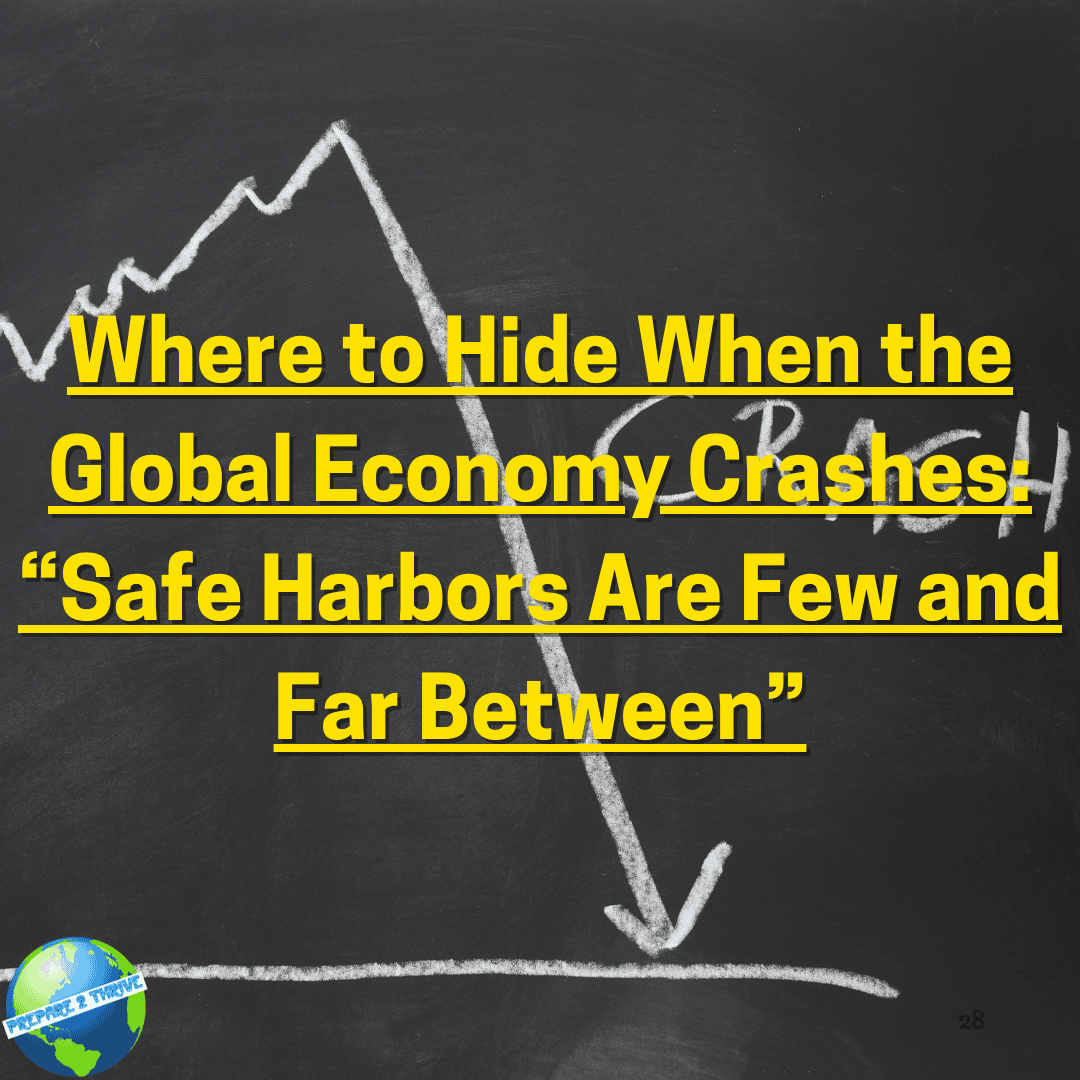 The world is constantly changing, and sometimes those changes bring turmoil, uncertainty, and even chaos. In times of global economic collapse, social unrest, and political instability, it's natural to seek out a safe haven where you and your loved ones can ride out the storm. But where can you go to avoid the worst of it?
The world is constantly changing, and sometimes those changes bring turmoil, uncertainty, and even chaos. In times of global economic collapse, social unrest, and political instability, it's natural to seek out a safe haven where you and your loved ones can ride out the storm. But where can you go to avoid the worst of it?
There are no guarantees in life, and no place is immune from natural disasters, civil unrest, or economic collapse. However, there are some pockets of relative safety around the world that could be more prone to stability than to collapse. If you're looking for a safe harbour in the midst of a global crisis, here are some places you might consider.
Scandinavia
If you're looking for a place with a high standard of living, excellent social services, and a strong safety net, the Scandinavian countries of Norway, Sweden, and Denmark are good choices. These countries have low crime rates, high levels of education and health, and stable, democratic governments. They also have strong economies, with a focus on innovation, technology, and sustainability.
Canada
Canada is another country that offers a high quality of life, strong social services, and a stable government. It has a diverse population, with a reputation for being friendly and welcoming to immigrants. Canada's economy is closely tied to the United States, which could be both a blessing and a curse in times of economic instability. However, the country has a well-developed infrastructure, abundant natural resources, and a strong economy overall.
Costa Rica
If you're looking for a warmer climate and a more laid-back lifestyle, Costa Rica could be a good choice. This Central American country has a stable democracy, a low crime rate, and a reputation for being peaceful and friendly. It also has a strong focus on environmental protection and sustainability, making it a popular destination for eco-tourism.
Chile
Chile is another South American country that has weathered economic and political turmoil in the past and emerged stronger for it. It has a stable democracy, a growing economy, and a focus on innovation and entrepreneurship. It also has a diverse landscape, with mountains, deserts, and beaches, making it a popular destination for outdoor enthusiasts.
New Zealand
Finally, if you're looking for a remote island paradise, New Zealand could be a good choice. This small country has a stable democracy, a low crime rate, and a strong focus on environmental protection and sustainability. It also has a diverse landscape, with mountains, beaches, and rolling hills. However, it's important to note that New Zealand is a long way from most other countries, which could make it difficult to access in times of crisis.
Of course, these are just a few examples of places that could be relatively safe in times of global turmoil. There are many other factors to consider, such as language barriers, cultural differences, and immigration policies. It's also important to keep in mind that no place is immune from natural disasters, economic collapse, or civil unrest.
In addition, it's worth noting that the United States, faces its own set of challenges, including political polarization, social unrest, potential military targets, poor to nil social programs, and a high rate of inflation that threatens to run out of control.
Ultimately, the best place for you to weather a global crisis will depend on your unique circumstances, preferences, and priorities. It's important to do your research, weigh the options carefully, and be prepared for whatever may come. Whether you choose to stay where you are or move to a new country, staying informed and prepared is key.
Of course, no place is completely immune to global crises, and each country has its own unique set of challenges. Even countries that are generally considered safe havens can experience natural disasters, economic downturns, and political unrest. It's important to research each country thoroughly and to consider your own personal circumstances before making a decision.
If you do decide to move to a new country, there are several steps you can take to prepare. First, make sure you have all the necessary paperwork and documentation in order. This may include a passport, visa, and other forms of identification. You should also have copies of important documents such as birth certificates, marriage certificates, and medical records.
It's also a good idea to have a plan for how you will support yourself financially in your new country. This may include finding a job, starting a business, or having savings to live off of. You should also research the cost of living in your new country and make sure you have a realistic budget.
Finally, it's important to stay informed and aware of what is happening in your new country. This may include learning the language, reading local news sources, and getting involved in the local community. By staying informed and prepared, you can increase your chances of success and safety during a global crisis.
In conclusion, choosing a safe haven during a global crisis is a complex decision that requires careful consideration. While no place is completely immune to global crises, there are certain countries that are generally considered safer than others. Factors such as political stability, geography, and the cost of living should be considered when making a decision. Ultimately, the best place for you will depend on your unique circumstances, preferences, and priorities. Whatever you decide, it's important to stay informed and prepared for whatever may come.
Hashtags:
#safeharbors #globalcrisis #economiccollapse #civilunrest #stability #naturaldisasters #immigration #selfreliance #evacuation #repatriation #preparedness



